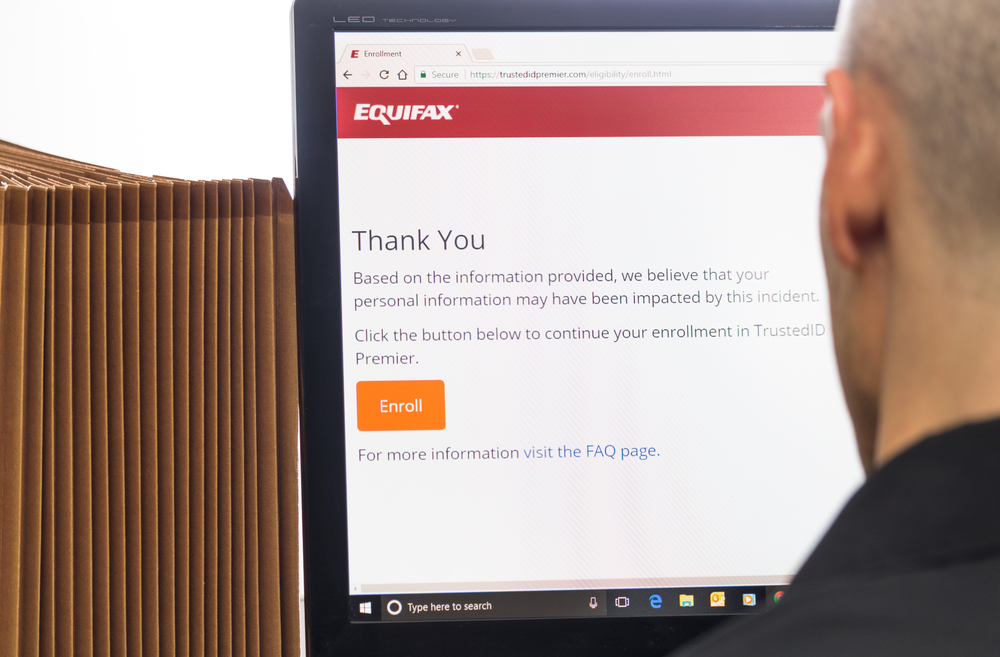Eliquis is a blood thinner that was manufactured by Bristol-Myers Squibb and Pfizer. It appeared on the market in late 2012 as a safer, easier-to-use alternative to Coumadin. The blood thinner was approved by the FDA, despite receiving information of an alleged cover-up and errors during the premarket clinical trial.
After multiple major bleeding events and patient deaths linked to the use of Eliquis, Bristol-Myers Squibb and Pfizer have faced lawsuits for negligence, fraud, and misrepresentation. In this short guide, you can read about what led up to the Eliquis Blood Thinner Lawsuit. Then, you can learn more about what legal claims you might be able to make and what the process might look like should you decide to pursue a claim.
- Why Are Patients Suing Manufacturers Over Eliquis Blood Thinner?
- What Does Eliquis Treat?
- What Are the Risks of Taking Eliquis?
- What Should I Do if I Have Been Affected by Eliquis Blood Thinner?
- How to Know if I Qualify to Be Part of an Eliquis Blood Thinner Lawsuit?
- How Does the Eliquis Blood Thinner Lawsuit Work?
- Do I Need a Lawyer to Join an Eliquis Blood Thinner Lawsuit?
- How Long Does It Take to Settle an Eliquis Blood Thinner Lawsuit?
- What Is the Statute of Limitations on Eliquis Blood Thinner Lawsuit?
- How Much Can You Get From an Eliquis Blood Thinner Lawsuit?
- How Long Does It Take to Get Your Money After You Settle a Lawsuit?
- Final Word
Why Are Patients Suing Manufacturers Over Eliquis Blood Thinner?
Eliquis uses a new class of anticoagulants known as apixaban. This compound works by inhibiting Factor Xa, an essential blood-clotting protein.
Initially, the premarket trials showed Eliquis to provide better protection from strokes and a lower risk of major bleeding events and mortality than its warfarin-based competitors.
However, a 2013 publication from Bloomberg revealed that the key premarket clinical trial that showed these impressive results was seriously flawed.
The trial in question was the Apixaban for Reduction in Stroke and Other Thromboembolic Events in Atrial Fibrillation (ARISTOTLE). During this trial, patients received the wrong medications, serious adverse events were unreported, and records were secretly changed.
The FDA was aware of these errors in the trial in 2012 when they approved Eliquis. At the time, the agency determined that the flaws “were not exceptional” and that there was still sufficient evidence of positive results.
While its competitors also carry the risk of major bleeding events and mortality, warfarin has an antidote available to reverse bleeding events. Apixaban, the key compound in Eliquis, does not. So, patients who do suffer a bleeding event from Eliquis have few options for treating it.
As a result, a series of more than 130 lawsuits were filed against Bristol-Myers and Pfizer. The lawsuits allege that the manufacturers concealed key information about the defects of Eliquis and fraudulently misrepresented the safety and risks of the medication to the public.
The specific allegations patients are claiming in their lawsuits include:
- Failing to conduct comprehensive and accurate testing of Eliquis
- Failing to provide adequate warning about the lack of antidote availability for Eliquis
- Downplaying the risks of taking Eliquis while overstating its safety
- Concealing safety information from the public
- Bringing to market a drug with unreasonable, dangerous side effects
- Negligence in advertising and recommending Eliquis without adequate knowledge of its dangers
- Failing to fulfill a drug maker’s duty to only bring reasonably safe products to market
- Committing fraud during clinical trials
- Prioritizing profits over patient safety
- Causing injuries and deaths as a result of this fraud, negligence, and misrepresentation
What Does Eliquis Treat?
Blood thinners are prescribed for patients who are at a higher risk of developing blood clots. Blood clots can block blood flow to certain parts of the body. While they often start in the leg, they can travel to areas like the brain or lungs where they can cause life-threatening conditions like pulmonary embolisms and strokes.
Blood thinners prevent these serious conditions from occurring by preventing your blood from forming clots in the first place.
The advantage that Eliquis was intended to offer was the ability to focus specifically on Factor Xa, a particular coagulating protein most strongly linked to blood clots. Older warfarin-based blood thinners target a broader range of clotting factors.
The idea was that targeting a specific clotting factor would reduce the risk of serious bleeding by reducing the side effects of chronic blood thinner usage. Clinical trials did not support that claim, though.
Some of the benefits of Eliquis and other apixaban-based drugs do offer include:
- Faster results than warfarin
- No lab monitoring required
- Fewer dose adjustments required
What Are the Risks of Taking Eliquis?
The most serious risks of the medication that manufacturers are being sued for include:
- Kidney bleeding
- Spinal bleeding
- Gastrointestinal bleeding
- Rectal bleeding
- Eye bleeding
- Cerebral hemorrhage
- Stroke
- Death
While these are normal risks associated with many medications that work by reducing your body’s ability to develop blood clots, the problems with Eliquis are twofold:
First, drug manufacturers misled the public by claiming that the risk of these side effects was lower than their warfarin-based competitors. It turns out that the level of risk was actually the same.
Second, the apixaban-based formula in Eliquis had no available antidote to reverse these side effects if you experienced them. So, if you experienced these side effects, the risk of a severe incident or even death was higher.
Warfarin-based medications have been the industry standard for decades and have an approved antidote should you experience a bleeding event. When taking warfarin, if any bleeding starts, doctors can reverse it with vitamin K.
Research has shown that this antidotal treatment that works for warfarin doesn’t work for apixaban-based drugs like Eliquis. The FDA did approve AndexXa in 2018, an antidote that can effectively stop the bleeding in apixaban-based drugs like Eliquis.
However, that means that for the period between 2012 and 2018, patients taking Eliquis were at risk of severe bleeding and had no antidote available to them if they did suffer this side effect.
To make matters worse, Eliquis also leaves your body faster than warfarin does. This means that missing a dose of Eliquis puts you at higher risk of blood clots returning than missing a dose of warfarin.
In other words, your risks while taking Eliquis were similar to warfarin while your risks from a missed dose were higher. Then, if you did experience any side effects, you had no treatment option available to you.
None of these risks or considerations were made clear to patients who were prescribed the medication during this time period. It was simply advertised as a lower-risk alternative to warfarin, even though it turned out not to be lower risk at all.
What Should I Do if I Have Been Affected by Eliquis Blood Thinner?
If you were prescribed Eliquis and then suffered serious, irreversible bleeding, you may qualify to file a lawsuit against Bristol-Myers and Pfizer. Your first step, however, should be talking to your doctor and seeking treatment as soon as possible.
Prompt and comprehensive treatment for the side effects of Eliquis is essential. Moreover, your doctor will be able to confirm whether the symptoms you are experiencing are related to this medication. Their documented confirmation that Eliquis was the cause of your symptoms will be key evidence when filing a legal claim.
Once you have begun treatment and confirmed with your doctor that your symptoms were caused by this medication, you can start preparing your case. To find out whether you have a case, you’ll need to contact a lawyer in your area who specializes in Eliquis injury claims.
Here’s the general step-by-step process you might follow in order to file your lawsuit:
- Seek medical treatment for any bleeding problems if you haven’t already.
- Gather all the relevant medical bills and documentation related to the problems you experienced while taking Eliquis.
- Choose a lawyer. Find a lawyer in your area who specializes in medical malpractice or medication injury claims.
- Schedule a consultation. At your initial consultation, the lawyer will ask you a lot of questions related to your use of the medication and the side effects you experienced.
- Begin the investigation. This step will be handled by your lawyer. If they decide you have a case, they’ll likely request additional documentation and begin gathering other evidence to help your case.
- File a demand. Most injury claims are settled long before reaching court. Your lawyer will contact Bristol-Myers or Pfizer and provide a demand letter, arguing your case and detailing the compensation you’re seeking.
- Once the demand has been filed, your lawyer will need to negotiate with the manufacturer’s lawyers. If you can come to an agreement through these negotiations, your case will be settled right then. If not, you and your lawyer need to decide if your case is strong enough to file an official lawsuit.
- File the lawsuit. If negotiations fail and you decide to move ahead with the lawsuit, this is the point at which you would do so.
Once the lawsuit is filed, the process could take years. You can read more about what the lawsuit process looks like below.
What if My Loved One Passed Away as a Result of Eliquis Blood Thinner?
If you are considering a lawsuit in regard to the death of a loved one, you will need to check your state’s laws regarding who can bring a wrongful death lawsuit to court. The law varies based on which relatives or representatives are allowed to make this kind of a claim, but in general, if you are the parent, child, or spouse of the deceased, you can likely make a claim.
In some states, if you have been named the personal representative of the deceased’s estate, you are also able to file a claim.
How to Know if I Qualify to Be Part of an Eliquis Blood Thinner Lawsuit?
The criteria to join the multistate litigation were patients who suffered any kind of severe bleeding problems while on Eliquis.
Severe bleeding problems include:
- Brain hemorrhage
- Hemorrhagic stroke
- Internal or gastrointestinal bleeds
- Wrongful death
While the multistate litigation has ended, you can still consult a lawyer if you’ve experienced any of the above problems to find out if you might be eligible for a settlement.
How Does the Eliquis Blood Thinner Lawsuit Work?
As mentioned earlier, the Eliquis Blood Thinner multistate litigation has already finished. If you would like to file an individual claim against the manufacturers, you’ll need to prepare for a long, multi-year process. It’s not easy or quick but if you have a good case, it could be worth it.
Each state has its own procedure to follow once the lawsuit is filed so you’ll need to look up your state’s laws or talk to your lawyer for a more exact description of what the process will involve. However, regardless of the state you’re in, it will probably follow these basic steps:
Discovery Phase
The day your lawyer files the lawsuit, the discovery phase begins and will last anywhere from six months to a year. This is the time period when both sides will review the case and investigate the claims you are making. Your lawyer, as well as the manufacturer’s lawyers, will be sending document requests to each other along with questions.
During this phase, you’ll want to prepare your statement and contact any relevant witnesses about providing testimony. Witnesses might include your doctor, your spouse, your children, or anyone else who can speak to the bleeding problems you experienced while taking Eliquis.
Mediation
This phase is much shorter, typically lasting only a few months. After the discovery phase is completed, your lawyers will either set a time to meet with each other in a negotiation or set up a mediation. In a negotiation, only the lawyers of both sides are present. In a mediation, you and a representative from the drug manufacturer will also participate.
While most lawsuits of this nature are settled during the pre-trial negotiation or mediation, the fact that Eliquis manufacturers have already successfully won a multistate litigation on the issue means they might be less willing to settle the case in mediation. However, if you have a strong case, they will prefer to reach a settlement before trial.
Trial
If you’re unable to reach a settlement in mediation, your lawsuit will go to trial. When that happens, the actual trial can last anywhere from days to months, depending on how complicated your claims are and how strong the manufacturer’s defense is.
During this phase, it’s easy to become frustrated and disillusioned. Trial dates will be set and reset. Schedule conflicts and procedural delays will draw out the process. Even so, you should try to avoid worrying about it. A trial date that keeps getting canceled and rescheduled has nothing to do with your odds of winning the case. There are lots of reasons a date may be changed.
Do I Need a Lawyer to Join an Eliquis Blood Thinner Lawsuit?
As there is currently no class action lawsuit, you will need a lawyer to file your own claim. This means you need to find your own lawyer. Look for one that specializes in medical malpractice or medical injury claims; you can start by filling out our form to be connected with legal experts.
How Long Does It Take to Settle an Eliquis Blood Thinner Lawsuit?
As you read earlier, the process of preparing a lawsuit, filing that lawsuit, and then seeing it through to court can take a long time. It’s hard to give any kind of time frame for when your Eliquis lawsuit will be settled because it depends on so many variables, including:
- The laws in your state
- How strong your particular case is
- How efficient your lawyer is
- Whether or not the manufacturer is willing to settle before it reaches trial
Regardless of these factors, be prepared for a long, drawn-out process somewhere around 1-2 years. You’ll need a lot of patience and perseverance, but you will get through it.
What Is the Statute of Limitations on Eliquis Blood Thinner Lawsuit?
Each state sets its own statute of limitations; for medical-related claims, it’s often around 2-3 years. It can be tricky with medical claims, though.
This two- or three-year timeline usually begins on the date of the injury itself. In an Eliquis lawsuit, that would be the date that you or your loved one was hospitalized for the bleeding event.
However, because patients aren’t always fully informed about the causes or their legal rights in these situations, some states will reset the time limit to the date of discovery.
What that means is, the actual bleeding event may have occurred more than 2-3 years ago but if it wasn’t until you a met with a lawyer and initiated the discovery phase that you learned of the injury, the statute of limitations timeline begins on the date of discovery, not the date of the actual injury.
In states that allow for this, the statute is usually shortened to one year from the date of discovery.
How Much Can You Get From an Eliquis Blood Thinner Lawsuit?
There is no guaranteed dollar amount, and it will be hard to provide an estimate of how much you might receive if you file an individual lawsuit. With that said, some of the injuries you can include in your claim are:
- Medical expenses
- Loss of financial support
- Loss of service or spousal benefits (i.e., household duties carried out by a spouse)
- Severe physical, economic, or emotional injury
- Diminished enjoyment of life
- Pain and suffering
- Life-threatening, irreversible bleeding
- Funeral expenses
- Loss of accumulations (future savings)
Together, these can add up to a substantial amount, and because your case would be an independent lawsuit, the amount you receive won’t be divided among all claimants as it is in a class action or multistate litigation case.
How Long Does It Take to Get Your Money After You Settle a Lawsuit?
While the process of preparing, filing, and arguing your lawsuit in court can be a long and exhausting journey, there is some light at the end of the tunnel. If you do win your case (or settle out of court), the payment will usually be sent out within a few weeks to a couple months. That’s a lot shorter than the year or more you spent fighting your case!
Bear in mind that your money will most likely be sent to your lawyer who will then deduct their fees and pass on the rest to you. If you’re able to negotiate a large settlement, you have the option of setting up a structured settlement.
This allows you to receive the payments in installments over the course of a few years instead of as one lump sum. By doing it that way, your tax bill on the money won’t be as high.
Final Word
If you or your relative suffered a major bleeding event or death while taking Eliquis, you might be entitled to compensation for your injuries. Reach out to a lawyer in your area who specializes in medical lawsuits by filling out our form to find out if you have a case!





